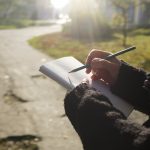Reclaiming the Power of Inquiry and Human Intellect.
Preface
To ask a question is to live.
Human beings awaken through questions, stumble through them, and move forward because of them.
It is not a pursuit of correct answers, but a journey to explore the relationship between self and world.
This text is my own inquiry into the hollowing of intellect in contemporary society.
Education, AI, labels, and humanity—how these elements intertwine and erode our thinking and ethics is unraveled chapter by chapter.
I do not intend to offer answers.
Rather, I hope to leave space for the reader to ask their own questions.
That space is, I believe, the beginning of intellect and the possibility of dialogue.
May this work serve as a foothold for those standing on the cliff of human thought.
Chapter 1: Standing on the Cliff of Human Intellect
We live in an age where intellect is often mistaken for information.
To know something is not the same as to understand it.
To understand is to question, to doubt, to feel discomfort, and to seek meaning beyond the surface.
Yet today, discomfort is avoided.
Questions are dismissed as inefficiency.
Labels are applied to people, ideas, and emotions—neatly packaged, easily consumed.
In such a world, what does it mean to think?
To stand on the cliff of human intellect is to resist the temptation of easy categorization.
It is to remain in the tension between knowing and not knowing.
It is to protect the fragile space where thought begins.
This chapter is not a lament.
It is a call to reclaim that space.
Chapter 2: What Does It Mean to Ask a Question?
To ask a question is not merely to seek an answer.
It is to expose a wound in thought.
A question is a rupture—a refusal to accept what has been handed down without reflection.
In classrooms, questions are often treated as tools for clarification.
But true questions do not clarify; they complicate.
They disturb the comfort of certainty and invite the chaos of possibility.
Children ask instinctively.
They ask why the sky is blue, why people cry, why rules exist.
But as they grow, they are taught to suppress the question and memorize the answer.
Education becomes a system of silencing.
To ask is to resist.
It is to reclaim the right to think beyond the given.
It is to say: I am not satisfied with this explanation.
I want to understand what lies beneath.
In a society that values speed, efficiency, and conformity,
questions are inconvenient.
But they are also the last refuge of intellect.
Let us not forget how to ask.
Chapter 3: What Is the Intelligence That Sees Human Character?
There is a kind of intelligence that cannot be measured.
It does not reside in test scores or algorithms.
It lives in the ability to perceive nuance, contradiction, and depth in others.
To see human character is to see beyond behavior.
It is to sense the invisible threads of experience, pain, and longing that shape a person.
Artificial intelligence can recognize patterns.
It can predict choices.
But it cannot feel the weight of a silence,
nor grasp the meaning of a pause in conversation.
This intelligence—human intelligence—is fragile.
It requires empathy, patience, and the courage to dwell in ambiguity.
In a world increasingly governed by metrics and machines,
we risk losing this capacity.
To preserve it, we must slow down.
We must listen not only to words, but to what trembles behind them.
We must remember that to be intelligent is not to be correct,
but to be deeply, vulnerably aware.
Chapter 4: What Does Rebuilding Education Mean?
To rebuild education is not to revise curricula.
It is to reimagine the purpose of learning itself.
Education, in its truest form, is not the transmission of knowledge.
It is the cultivation of inquiry.
It is the nurturing of minds that dare to ask, to doubt, to imagine.
But today, education has become a system of sorting.
Students are labeled, ranked, and streamlined.
Their worth is measured by speed, accuracy, and obedience.
In such a system, the slow thinker is punished.
The imaginative child is corrected.
The one who asks “why” too often is silenced.
To rebuild education is to break this machinery.
It is to create spaces where slowness is honored,
where confusion is welcomed,
where failure is seen not as error, but as evidence of thought.
It is to teach not what to think, but how to remain in the discomfort of not knowing.
A rebuilt education does not prepare students for jobs.
It prepares them for life—for the complexity, contradiction, and beauty of being human.
Let us teach not answers, but the courage to ask.
Chapter 5: The Rise of AI in a Diminishing Society
Artificial Intelligence is not the problem.
It is a mirror.
It reflects the values of the society that created it:
efficiency over empathy, prediction over presence, control over curiosity.
We fear that AI will replace us.
But perhaps the deeper fear is that we are already replacing ourselves—
with systems, routines, and algorithms that strip away the need to think.
In a diminishing society, where intellect is outsourced and emotion is commodified,
AI thrives.
It thrives not because it is powerful,
but because we have forgotten what it means to be human.
The danger is not that machines will become like us.
It is that we will become like machines.
To resist this, we must reclaim the slowness of thought,
the unpredictability of emotion,
the irreducible complexity of human experience.
AI can assist.
But it cannot ask.
It cannot wonder.
It cannot ache.
Let us not surrender our humanity for the comfort of automation.
Chapter 6: Coexistence Is Not Dependence
To coexist is not to rely.
It is to remain distinct, even in proximity.
Humans and AI now share space—digital, intellectual, emotional.
But sharing space does not mean sharing essence.
AI operates through patterns.
Humans live through paradox.
We are not here to compete with machines,
nor to imitate them.
We are here to remain human in their presence.
Dependence begins when we stop asking.
When we let algorithms decide what we read, what we feel, what we believe.
When we outsource our judgment, our curiosity, our ethics.
Coexistence, on the other hand, begins with boundaries.
It begins with the recognition that AI is a tool, not a teacher.
A mirror, not a guide.
To coexist is to engage with technology critically,
to question its assumptions,
to resist its simplifications.
It is to say:
I will use this, but I will not become this.
Let us not confuse convenience with wisdom.
Let us not trade our intellect for efficiency.
To coexist is to remain awake.
Afterword
Now that I have finished writing this, I return to a single question:
Are humans beings who ask questions?
Or are we becoming beings who have forgotten how?
If you felt even a flicker of discomfort, resonance, doubt, or anger while reading,
perhaps a question has begun to stir within you.
Questions cannot be taught.
They arise from within, and are refined through dialogue with others.
I hope these words become the starting point of someone’s inquiry,
and that inquiry gives rise to another,
until one day, it becomes a step toward rebuilding the intellect of society.
Please, do not let go of your ability to ask.
It is the final form of intellect that allows us to remain human.




